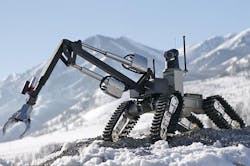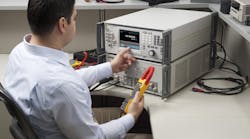Officials of the Army Contracting Command at Picatinny Arsenal, N.J., have announced plans to issue formal solicitations to members of the Robotics Technology Consortium in Ann Arbor, Mich., for machine learning, adaption, and artificial intelligence for UGVs.
Army researchers say they will issue requests for project proposals soon, and their announcement late last month (W15QKN14Z1692) is to provide members of the Robotics Technology Consortium, and industry in general, advanced notification of their plans.
The Robotics Technology Consortium, formed in 2008, has 96 members, which include Oshkosh Corp.; Harris Corp.; Themis Computer; BAE Systems; Insitu Inc.; QinetiQ North America; Silvus Technologies Inc.; and many others.
Related: Control and data-link radios for unmanned vehicles pushing the limits of SWaP
U.S. Army explosive ordnance disposal (EOD) experts in recent years have made wide use of UGVs to find and disarm improvised explosive devices (IEDs) and other kinds of roadside bombs intended to surprise and cripple military patrols and convoys.
UGVs of various sizes also are being developed for surveillance and reconnaissance, carrying warfighter equipment on the battlefield, vehicle inspection, checkpoints in dangerous areas, and even to fire light weapons.
story continues below
Some UGVs take their instructions from human operators, others are fitted with sensors that enable them to follow their operators even over rough terrain, and some have the ability to sense and avoid obstacles. Now Army researchers want to take those abilities to the next level with help from members of the Robotics Technology Consortium.
Artificial intelligence could enable UGVs to perceive their operating environments and takes actions that make the most of their chances of success.
Related: iRobot lands another Navy contract for ground robots that assist bomb-disposal technicians
The goals of artificial intelligence research include enabling UGVs to reason, amass knowledge, plan, learn, understand spoken language, perceive obstacles and threats, and manipulate objects with robotic arms or other appendages.
Machine learning and adaptation is a branch of artificial intelligence that seeks to enable UGVs and other machines to learn from data and change their behavior, methodologies, and goals based on mistakes made in the past.
For questions or concerns about the upcoming solicitations, phone the Army's James Cummiskey at 973-724-7278. More information is online at https://www.fbo.gov/notices/bcda1b8b12b366255ce404a4465f60e4.
For additional information contact the Robotics Technology Consortium online at www.roboticstechc.org, or the Army Contracting Command at www.army.mil/acc.



